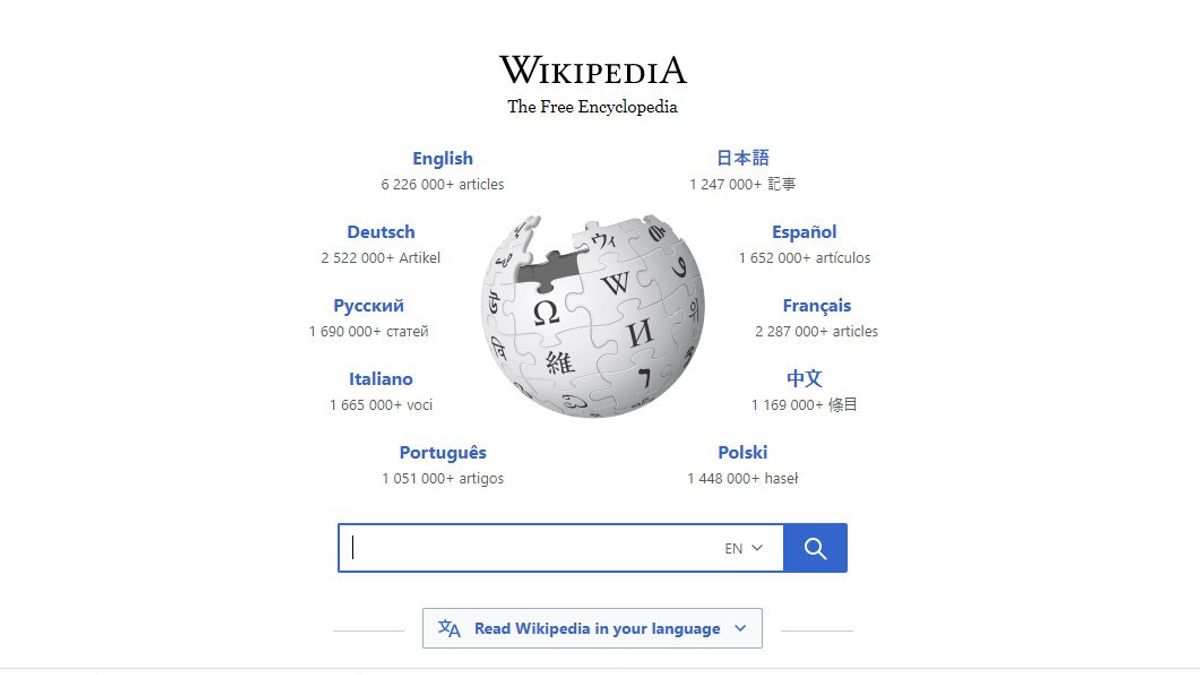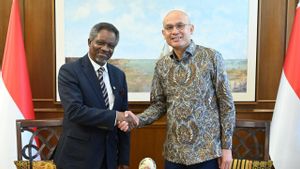JAKARTA - For information seekers on search engines, it is very rare that they don't know Wikipedia. This site is one of the most visited on the internet. And right today, January 15, two decades ago or in 2001, this free encyclopedia managed by the Wikimedia Foundation was operational.
To quote Computer History, the software behind Wikipedia is relatively simple. But the impact of this site is enormous. Its multi-sourced articles draw on a worldwide community of experts and editors, democratizing the process of sharing and updating information.
Wikipedia was launched as a feature of Nupedia.com initially. However, following objections from the advisory board, Wikipedia was relaunched as an independent site a few days later. In its first year, Wikipedia grew to about 20,000 articles in 18 languages, including French, German, Polish, Dutch, Hebrew, Chinese, and Esperanto. In 2003, Nupedia was discontinued and the article was transferred to Wikipedia.
As of 2006, the English version of Wikipedia has more than one million articles. By the time of his 10th birthday in 2011, Wikipedia articles surpassed 3.5 million. However, as the encyclopedia continues to grow at a rate of millions of words per month, the number of new articles created each year gradually decreases, from a peak of 665,000 in 2007 to 374,000 in 2010. In response to this slowdown, the Wikimedia Foundation has begun to focus its expansion efforts on the non-version of Wikipedia UK, which in 2011 numbered more than 250.
Launching Britannica, several versions of Wikipedia have collected hundreds of thousands of articles. Particular attention has been paid to Wikipedia in developing country languages, such as Swahili and Tamil, in an effort to reach populations previously unserved by the Internet. However, one barrier to Wikipedia's ability to reach a truly global audience is the Chinese Government's periodic restrictions on access to some or all content sites in China.
ControversyReliance on community policies raises several problems. In 2005, American journalist John L. Seigenthaler, Jr., discovered that his Wikipedia biography had mistakenly identified him as a conspirator in the assassinations of John F. Kennedy and Robert F. Kennedy.
This claim passes to Wikipedia for 132 days. The author of this information cannot be easily identified, because all that is known about contributors is not registered and is only the IP address or Internet protocol of their computer. The contributor later confessed and apologized, saying he wrote false information as a joke.
The Seigenthaler case prompted Wikipedia to ban unregistered users from editing certain articles. An example of similar vandalism then led site administrators to formulate a procedure, despite protests from some contributors, in which some edits would be reviewed by experienced editors before changes could appear online.
Wikipedia administrators also have the power to block certain IP addresses, a capability used in 2006 after it was discovered that staff members of some United States (US) congressional representatives altered articles to remove unwanted details.
News of selfish editing inspired Virgil Griffith, a graduate student at the California Institute of Technology, to create a Wikipedia scanner or WikiScanner, in 2007.By associating the IP address attached to each Wikipedia edit with its owner, Griffith built the database he provided for anyone.
While many universities or colleges prevent or prohibit students from using Wikipedia as a research tool. In 2010 the Wikimedia Foundation, recruited several public policy professors in the US to develop a platform where students contribute content to the Wikipedia site.
This was done because Wikipedia became an apparently inescapable part of the Internet landscape. This claim is reinforced by the increasing number of citations from Wikipedia in US judicial opinion, as well as a program run by the German government to work with German-language sites.
The English, Chinese, Japanese, Arabic, and French versions are automatically generated by the AI. So there may still be inaccuracies in translating, please always see Indonesian as our main language. (system supported by DigitalSiber.id)













